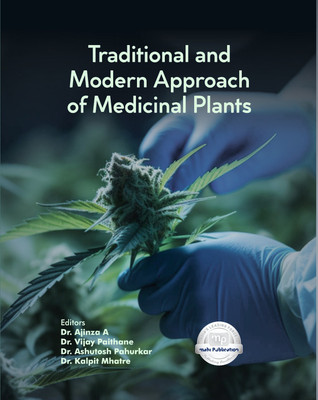Traditional and Modern Approach of Medicinal Plants - Traditional, Modern, Approach, Medicinal, Plants with 1 Disc(Paperback, Dr. Ajinza A, Dr. Vijay Paithane, Dr. Ashutosh Pahurkar, Dr. Kalpit Mhatre)
Quick Overview
Product Price Comparison
Indian medicinal plants trace their origins back thousands of years, woven into the very fabric of early civilization. The Vedas, especially the Rigveda and Atharvaveda, provide some of the earliest recorded mentions of plants used for healing. This ancient knowledge evolved into structured medical systems like Ayurveda, which elaborated on the medicinal uses of herbs in both preventative and curative ways. Archaeological evidence from the Indus Valley Civilization indicates the use of medicinal herbs in their ritual and domestic practices. The integration of plantbased remedies was not limited to medicine but extended to diet, spiritual practices, and seasonal rituals. Plants were considered sacred entities with energies capable of balancing the human body and mind. Over centuries, oral traditions preserved the names, uses, and preparations of these herbs. Sage-physicians (rishis) and seers who practiced yoga and meditation documented this knowledge meticulously in palm-leaf manuscripts and stone carvings. These records were not only medical but also philosophical, viewing health as a harmonious relationship with nature. Thus, medicinal plants formed the basis for a holistic healing tradition that encompassed body, mind, and spirit. IndiaŌĆÖs climate and biodiversity further allowed for the cultivation and use of a wide array of botanical resources. As trade flourished with neighboring regions, Indian medicinal plants influenced systems in China, the Middle East, and Southeast Asia. Despite colonial disruptions, this traditional knowledge persisted in rural and tribal areas, ensuring its survival to the present day. Today, Indian medicinal plants are studied globally, not only for their bioactive compounds but also for the traditional wisdom behind their use. This enduring legacy marks India as one of the richest repositories of ethnobotanical heritage in the world

